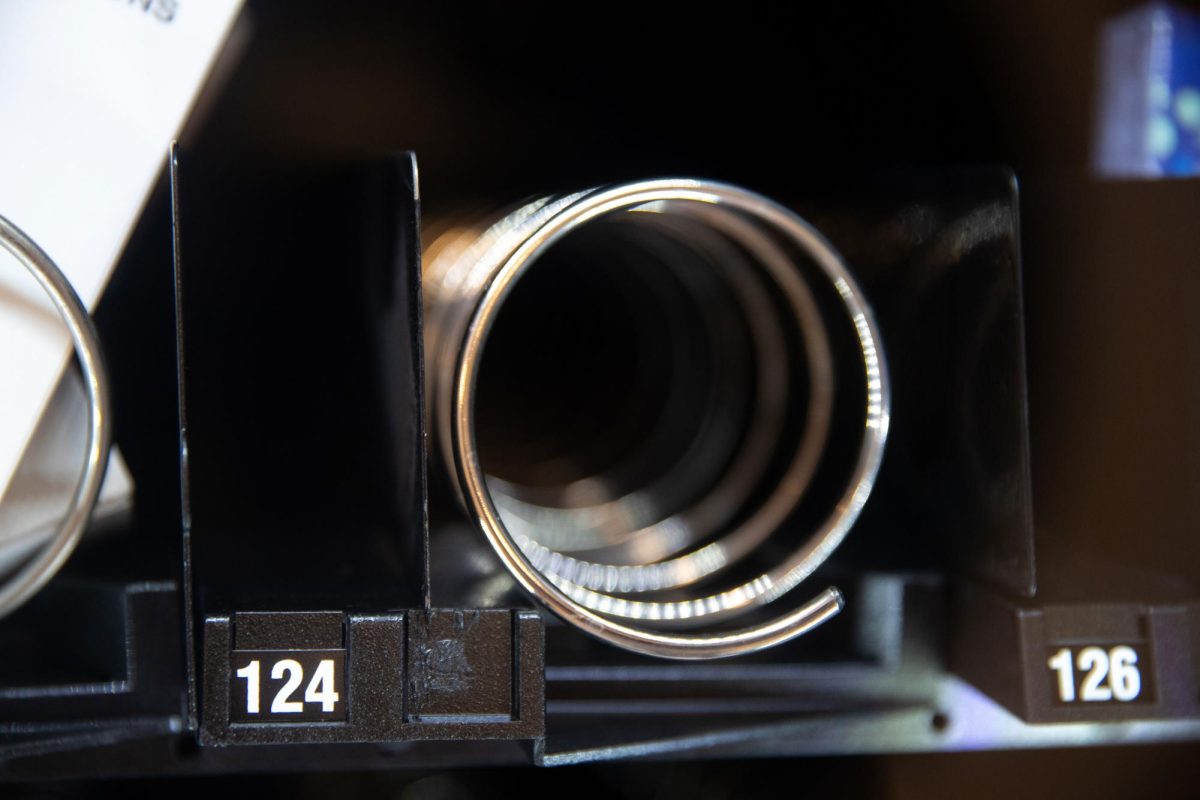A District House contraceptive vending machine sold out of 50 morning-after contraceptive pills in less than a week and a half earlier this month, which student leaders say proves the necessity of the program.
Officials restocked one of two new campus contraceptive vending machines Wednesday with 200 emergency contraceptive pills — four times as many as the initial stock that sold out. Stephanie Spector, the co-president of GW Reproductive Autonomy and Gender Equity — a student organization that advocates for reproductive justice on campus — said although GW RAGE was initially unsure how quickly the emergency contraceptives would sell out, they were not surprised when they did because they knew that demand for emergency contraceptives on college campuses is “really high.”
Spector said the machine selling out quickly demonstrates how the new dispenser has improved since officials first installed one in the University Student Center in January. Officials installed a new dispenser on the B2 level of District House and in West Hall on the Mount Vernon Campus late last month, moving the machine from the student center after students said it was inaccessible during the night because the building is closed from midnight to 7 a.m.
“There are a lot of methods in place to get Plan B on campus and we really don’t have any concerns with the ability to stock it going forward,” Spector said. “The higher the demand is, that’s not going to cause any issues because that just shows that there was a lack of access previously.”
Spector said the company that operates the vending machine, Canteen, and members of GW RAGE will continue to “repeatedly” check on the vending machines to ensure they are properly stocked and functioning.
GW RAGE co-President Maddy Niziolek said the process to restock the vending machines with morning-after contraceptive pills takes “longer” than other products like tampons, condoms and pregnancy tests because GW must purchase contraceptives from an external company, which Canteen then buys and stocks. She said the University bought 200 doses of morning-after contraceptive pills for the restock as a preemptive measure.
Niziolek said students bought more doses in the first week and a half after the new vending machines’ installation than all of last semester from the first vending machine in the student center, likely because the machines are located in buildings open 24/7 and the contraceptives’ subsidized price.
“We didn’t know that it would be as much more popular as the other vending machines considering that it did sell so many doses so quickly,” Niziolek said. “We’re super excited that students are using it and are finding it more accessible.”
Niziolek said the restocking process will be “smoother” as the University becomes more adept with the procedure of ordering the morning-after pills and guaranteeing the machine is sufficiently stocked.
“We weren’t monitoring the supply after just a week because the vending machine company will be stocking other products pretty often, so they kind of assumed they would notice that it was going down,” Niziolek said. “Going forward, they’ll be able to notice that the supply is coming down and they need to order it ahead.”
Student Association President Arielle Geismar said she is committed to working with GW RAGE to keep the project funded and the machines stocked. Geismar allocated $1,000 of her executive budget toward subsidizing the project in late August and said if her subsidization were to run out during this school year, she would help GW RAGE find funding elsewhere, like through the co-sponsorship fund, a supplemental funding pool that organizations can request from after the general allocations cycle.
“If worse comes to worst, I’m not letting this project go unfunded,” Geismar said. “This is going to continue, if I have to devote more money from my own budget, then I will.”
Sophomore Amanda Reed said the only reason her friends have used the new machines is to purchase contraceptives. She said restocking the morning-after pill in the machines is “necessary” because students are showing a high demand for the contraceptives and because vending machines allow students to buy the pills without interacting with another person to obtain it.
“I’ve only known people of personally that have gone to the vending machines for the purpose of getting Plan B, especially because GW RAGE did a good job of trying to get them for a much cheaper rate in the vending machines than you would as if you went to CVS or something,” Reed said.
Sophomore Hannah Spiegeler, a member of GW RAGE, said GW has made “great strides” toward reproductive justice through access to emergency contraceptives, but there is room for improvement like ensuring the vending machines are stocked. She said it is “imperative” that the University is proactive in keeping the machine filled so students do not have to interact with a health care provider or “middleman.”
“It’s better that students can access the machines because it allows students to take control of their own reproductive health,” Spiegeler said. “A lot of students might not feel comfortable or might not have the means, like financial or otherwise, to seek Plan B from a health care provider or they might feel embarrassed.”





